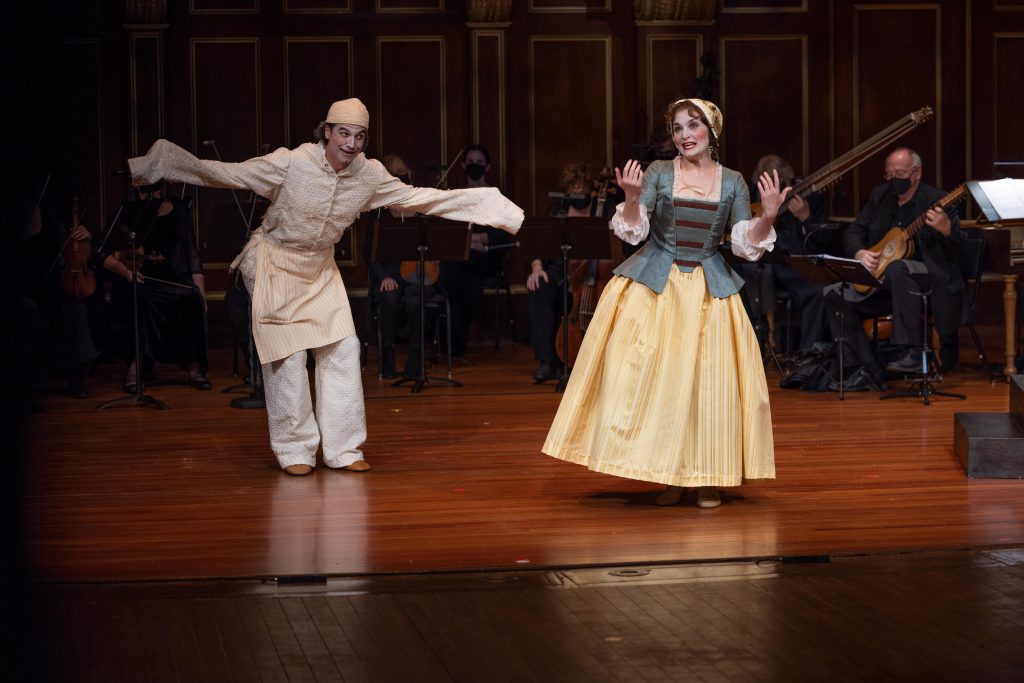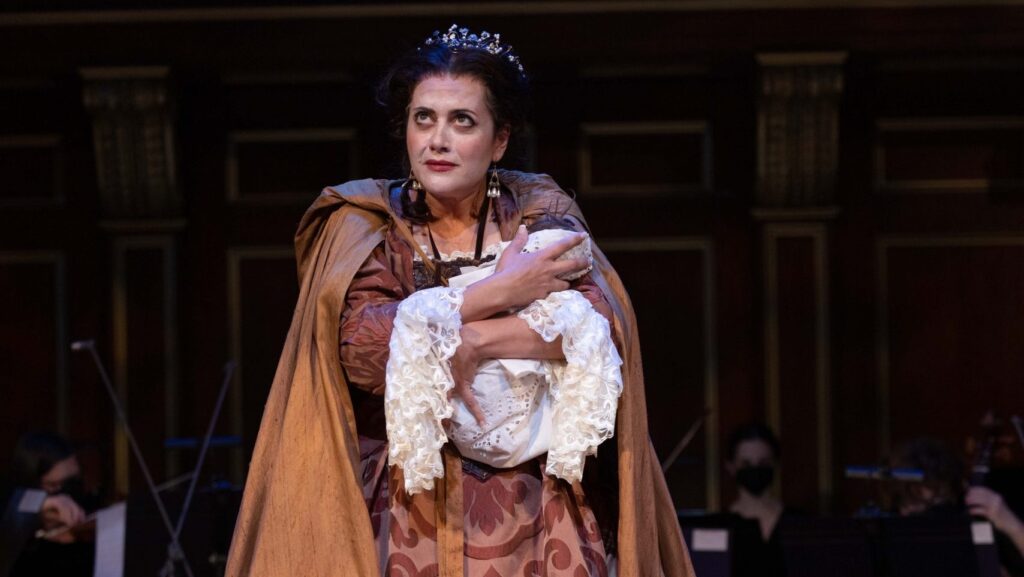Pimpinone & Ino
Georg Philipp Telemann (1681 - 1767)
Inspired by the Italian comic intermezzi, Pimpinone is about social class differences and humanity as the narcissistic Pimpinone is stung by the beauty and barbs of his charming chambermaid, Vespetta. The cantata Ino is drawn from Ovid’s Metamorphoses. The two pieces are staged as was customary at the time, drama with a comedy serving as an intermezzo.
Pimpinone

Douglas Williams, Pimpinone. Danielle Reuter-Harrah, Vespetta. Boston Early Music Festival, photo Kathy Wittman
What amuses us trough the ages
The plots and characteristic situations of the intermezzi make any production a continuous variation on the same theme. The intrigues are built mainly around stereotypes regarding women: their cunning nature, their obvious inconstancy, their congenital duplicity.
What amuses us—or leaves us perplexed and irritates us in these scenes—was different for an audience in the eighteenth century, when these works were a great success. Humor based on sexism (misogyny, homophobia, transphobia), with hints of xenophobia, ageism, etc., is always in the background, if not center stage. What amused people then may be exasperating today, but not always, not necessarily.
The real difficulty is to distinguish which comic effects remain enduring, tenacious, inextinguishable, and which ones are faded, or have completely expired. The humor may be hidden in a detail or need explanation because of an unfamiliar historical context. Amusement may also depend on whether one enjoys the mockery and identifies with the satirist or sympathizes with the mocked. It is these layers of meaning that the dramaturgy must untie to prepare the new building which is the performance.
For Pimpinone, it seemed necessary to conduct a global reflection. This critical approach is what I am attempting here, based on a reading of the libretto. This attempt to “understand” the texts by constantly keeping in mind what the original intentions were, is also to determine whether those intentions are still dynamic today: generating comedy and carrying meaning.
Ino

Amanda Forsythe, Ino. Boston Early Music Festival, photo Kathy Wittman
Tragedy and Metamorphoses
Telemann’s cantata “Ino” is a powerful musical rendition of a classical myth, dramatizing the harrowing tale of Ino, a figure from Greek mythology who endures profound tragedy and transformation. The libretto tells the story of Ino, the daughter of Cadmus and Harmonia, who is driven to madness by the cruel machinations of her husband. Distraught and pursued by visions, Ino ultimately throws herself and their son into the sea, where they are transformed into a sea gods, figures of both sorrow and hope.
Telemann’s composition vividly brings to life Ino’s emotional journey, from the depths of despair to her divine metamorphosis. The narrative is structured around a series of recitatives and arias that express Ino’s inner turmoil and her interactions with the forces—both internal and external—that drive her towards her fate. The music intensifies the drama, with poignant melodies and dynamic orchestration that mirror the peaks and valleys of Ino’s psychological state.
This cantata not only explores themes of suffering and metamorphoses but also offers a poignant reflection on the human condition.
Boston Early Music Festival
Chamber Opera Series
NEC’s Jordan Hall, Boston
Premiere November 27, 2021
Artists
Paul O’Dette & Stephen Stubbs, Musical Directors
Gilbert Blin & Marie-Nathalie Lacoursière, Stage Directors
Robert Mealy, Concertmaster
Melinda Sullivan, Dance Director
Gilbert Blin & Meriem Bahri, Costume Designers
Aja M. Jackson, Lighting Designer
Get in touch
Copyright
© 2024 Gilbert Blin, All rights reserved